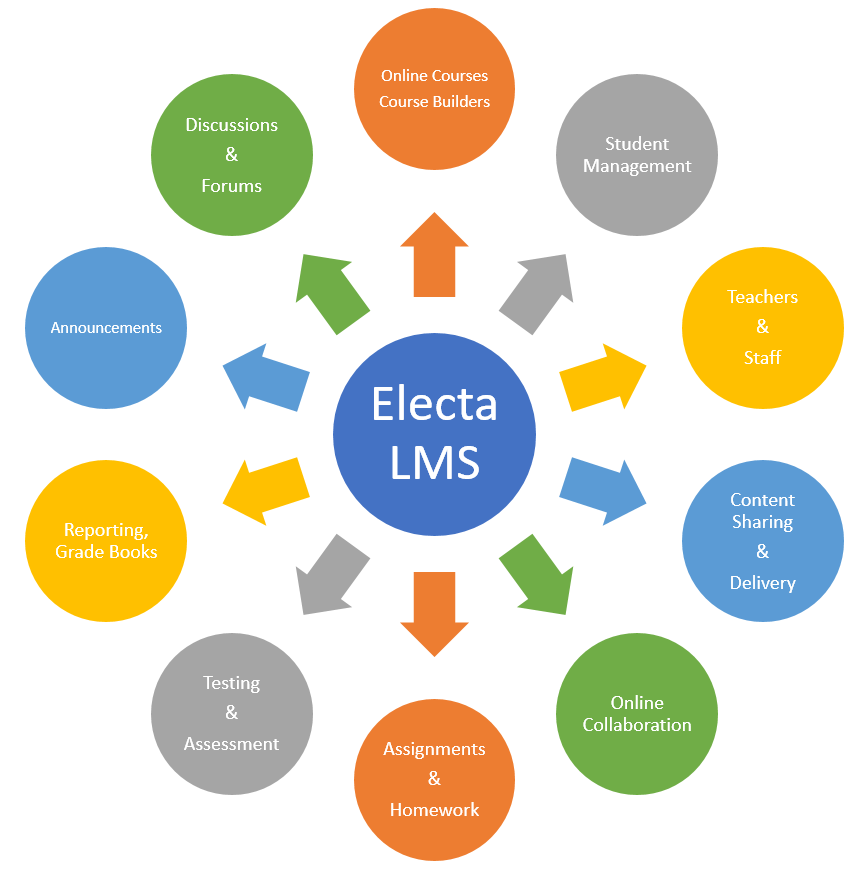LMS Singapore for Company Training: A Comprehensive Guide for Services
Wiki Article
Every Little Thing You Need to Learn About Choosing a Knowing Administration System
Selecting an ideal Understanding Management System (LMS) is a critical choice that can considerably affect the performance of your training programs. It includes an extensive understanding of both your organizational demands and the crucial functions offered in numerous LMS choices.Understanding Discovering Administration Systems
A substantial number of companies today are acknowledging the worth of Knowing Management Solution (LMS) as important devices for effective training and education and learning. An LMS is a software program application developed to facilitate the administration, documents, tracking, reporting, and distribution of instructional programs or training programs. By settling training initiatives into a central platform, organizations can enhance procedures and improve finding out experiences.LMS platforms support various finding out approaches, consisting of e-learning, combined knowing, and instructor-led training. Their adaptability makes them suitable for diverse markets, from corporate training to academic organizations. Through using LMS, organizations can deliver constant content, making certain that workers and learners have access to the required sources despite place.
Moreover, LMS remedies commonly integrate functions that make it possible for analytics and coverage, permitting companies to assess the effectiveness of their training programs. This data-driven technique equips companies to make informed decisions concerning curriculum modifications and resource allotment - Canvas Singapore. Eventually, the adoption of an LMS can cause raised student engagement, improved retention rates, and enhanced total efficiency, declaring its standing as a vital part of modern-day instructional methods
Key Attributes to Think About
When choosing a Knowing Administration System, organizations ought to prioritize details functions that line up with their training goals and customer needs. Primarily, user-friendliness is necessary; a system with an user-friendly interface can boost learner interaction and reduce the moment required for training administrators.Another critical attribute is robust coverage and analytics capacities, permitting organizations to track learner progress, conclusion prices, and analysis results. This information is invaluable for refining training programs and showing ROI.
Additionally, mobile compatibility is progressively essential as learners favor accessing material on numerous gadgets. A receptive LMS makes sure that training comes anytime, anywhere, consequently increasing versatility.
Content administration functionality is additionally important; the LMS needs to support numerous material kinds, including video clips, tests, and interactive modules, to satisfy different discovering designs.
Analyzing Your Organization's Requirements
Identifying a company's unique training demands is crucial for choosing the appropriate Knowing Monitoring System (LMS) To start this analysis, organizations must conduct a detailed evaluation of their present training landscape, consisting of existing programs, individual demographics, and specific discovering purposes. This procedure helps highlight toughness and voids in current offerings, assisting the option of an LMS that straightens with business goals.Furthermore, take into consideration the kinds of content to be delivered, such as e-learning modules, compliance training, or mixed discovering experiences. check it out Recognizing the favored distribution techniques and learning styles of employees is crucial for effective training involvement. Additionally, companies must review their technical framework, ensuring compatibility with the prospective LMS.
In addition, establish clear metrics for success, such as learner contentment and expertise retention, to help measure the performance of the selected LMS. By meticulously assessing these variables, organizations can make educated decisions, guaranteeing their selected LMS effectively satisfies their training needs and boosts general performance.
Contrasting Different LMS Options
Many Knowing Monitoring System (LMS) options are readily available on the market, each offering distinctive features and capabilities that satisfy varied organizational requirements. When contrasting LMS choices, companies should take into consideration several essential elements. The customer interface and experience are critical; an instinctive design can dramatically impact user interaction and fostering rates.Second, examine the scalability of the LMS. As your company grows, the system needs to fit an increasing number of individuals and web content without compromising efficiency. Third, assimilation abilities are crucial; the LMS ought to effortlessly attach with existing tools, such as HR systems, CRM systems, and material libraries, to improve capability.
Moreover, think about the personalization options available. An LMS this hyperlink that allows tailored branding, program production, and coverage can better line up with details business objectives. Additionally, pricing models differ extensively, so it is vital to evaluate the overall price of possession, consisting of licensing charges, upkeep, and assistance.

Implementation and Assistance Approaches
Efficiently implementing a Learning Management System (LMS) requires a tactical technique that includes complete planning and ongoing support. Begin by establishing clear purposes that straighten with your organization's academic objectives. Involve key stakeholders and form a devoted execution group to assist in communication and collaboration throughout the procedure.Beginning with a pilot program including a smaller individual team, allowing for real-time responses and modifications. Provide thorough training to guarantee customers are comfortable with the LMS performances and features.
Establish a durable assistance system that includes helpdesk resources, customer manuals, and training sessions. Furthermore, take into consideration creating a community forum for individuals to share solutions and experiences.
Final Thought
In conclusion, selecting a suitable Learning Monitoring System demands a detailed examination of organizational demands and offered choices. By carefully taking into consideration these factors, companies can make sure effective training distribution and eventually accomplish their academic Click Here objectives through the selected LMS.A considerable number of companies today are acknowledging the value of Discovering Management Equipment (LMS) as necessary tools for reliable training and education.In addition, LMS options typically incorporate functions that enable analytics and coverage, allowing companies to assess the efficiency of their training programs.Recognizing a company's special training requirements is critical for choosing the appropriate Understanding Administration System (LMS) By diligently examining these aspects, companies can make informed choices, guaranteeing their picked LMS effectively satisfies their training demands and enhances general efficiency.
By meticulously thinking about these aspects, companies can guarantee efficient training distribution and ultimately accomplish their instructional objectives through the selected LMS.
Report this wiki page